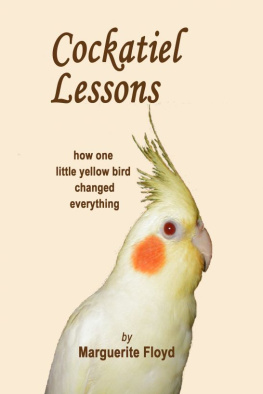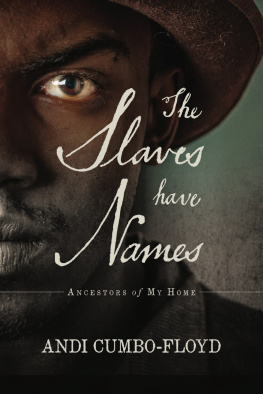
This edition is published by PICKLE PARTNERS PUBLISHINGwww.pp-publishing.com
To join our mailing list for new titles or for issues with our bookspicklepublishing@gmail.com
Or on Facebook
Text originally published in 1963 under the same title.
Pickle Partners Publishing 2016, all rights reserved. No part of this publication may be reproduced, stored in a retrieval system or transmitted by any means, electrical, mechanical or otherwise without the written permission of the copyright holder.
Publishers Note
Although in most cases we have retained the Authors original spelling and grammar to authentically reproduce the work of the Author and the original intent of such material, some additional notes and clarifications have been added for the modern readers benefit.
We have also made every effort to include all maps and illustrations of the original edition the limitations of formatting do not allow of including larger maps, we will upload as many of these maps as possible.
YESTERDAY IN THE HILLS
BY
FLOYD C. WATKINS & CHARLES HUBERT WATKINS
TABLE OF CONTENTS
Contents
TABLE OF CONTENTS
ACKNOWLEDGMENTS
In many ways the hill people themselves have written this book, and we merely held the pen.
Most resemblances to persons, places, and events are entirely intentional. We have changed names and combined and altered persons and events. Those who recognize themselves, we believe, will be pleased with what they are.
We are much obliged to those who helped us remember, especially Frank Watkins, Jim Watkins, Hubert Holbert, Charley Wilkie, Homer Cochran, Clyde Ridings, Calvin Farmer, and Carl Roberts.
We are indebted to Edwin T. Martin and Thomas H. English, who listened and advised; to William B. Dillingham, who read the manuscript; and to the Emory University Research Committee, which provided financial assistance.
PREFACE
This book began in vague ways and over a period of years, but mainly it started as the attempt of father and son to recreate the past. We wished to describe the day-to-day life and culture of the unlettered Southern hill farmer. The people of the hills (or at least those we knew in the northern half of Cherokee County, Georgia) did not radically change from Reconstruction until World War II. Then most of the older ways disappeared in less than a decade.
But we learned that we could not recreate the old days in all their fullness, because neither writer nor reader can lose his modern perspective. The one-horse farmer of the past cannot be himself as we see him with modern eyes. We can no more go back to his culture than we can become a medieval peasant. A brick house with a bath and a half is also a state of mind. And grandsons cannot think like a grandfather who had never heard of an indoor toilet.
In his own eyes, the hillman was not quaint nor poor nor ignorant nor backward nor even unusual. He was, simply, himself, and he knew what he was in the eyes of himself and his neighbor and his God. He was a student of legend and folklore, but oblivious to history; he lived almost comfortably off the land, but he had no concept of progress; he knew that some families had good blood and rich land and that some families were trash, but he had no concept of class; he knew that some people lived in cities, but his imagination, which was fertile in comprehending the natural and supernatural worlds, could not conceive of an urban life.
Making a living with the bare hands and a few tools was identity enough. But the next pinnacle beyond survival was personalitythe greatest pleasure, the highest aim, and the most significant accomplishment. Individuality was his achievement and his recreation. In the way he planted his crops, voted in an election, told a story, and raised his sons, he set his own standards and spurned all others. Casual in manner but with deliberateness beneath the appearance of ease, he coined his own figures of speech, made up his own jokes, established a reputation as a man of his word, made up his own mind about the character of his neighbors, cultivated his own humor and wit and eccentricity. What the outsider interpreted as backwardness and absurdity, the knowing neighbor viewed as individuality, humor, and companionship.
THE HOPKINSES
Sam, Donie, Mattie, and Jim Hopkins lived with their folks on the ridge road a mile from the main highway and uphill nearly all the way. Their home, a two-room dilapidated hut, had a moss-covered roof. Mattie was deformed. She had tiny hands and arms and was unable to work.
The Hopkinses had almost nothing to eat. They lived off a little peach orchard and a few crops on a little new ground. In the winter, Ma Hopkins and the girls visited their neighbors a mile away, carried two tow sacks, and filled them with corncobs for their brindle cow. Mattie could not tote cobs, but Donie and her ma carried two partly filled sacks hack up the steep road. They boiled the cobs in salty water and fed them to the cow.
The census taker once asked old man Hopkins if there were any idiots in the family. No, no idiots, I dont reckin, he said; but theres Jim. When he was a little tad a plowstock fell on his head, and he never has had good sense.
Well, Jim commented, plowstock must a fell on the whole damn family.
Once when Hu Watkins went by the Hopkins home before a possum hunt, Donie was churning. Flies covered the sides of the churn, and she caught a handful, squshed them to death in her hand, and kept on churning.
Sam was little, and all of his teeth were gone except one large fang, which showed when he laughed. He said he could see better in the dark than the daytime because he was squint-eyed. Sam and his old yellow steer, Buck, tried to farm the hilltops. One year Sam cleared a new ground. When Buck plowed a furrow in the direction away from home, he moved so slow that Sam did not believe they would ever reach the edge of the field. Plowing toward home, old Buck curled his tail and tried to run. When the plow hung under a root in the rough new ground, Sam almost fell over the plowstock. One day Sam unhitched old Buck from the plow and tied him to a sapling to whip him. After three licks, Buck broke loose, hoisted his crooked tail in the air, and rushed over the hill toward home.
Late in the summer Sam pulled fodder with the Watkins boys. They worked until sundown, reached home at eight oclock, went possum hunting until one or two, rose the next morning before sunup, unloaded the fodder, and went back to the fodder field. Sams blue-speckled possum dog, Drive, was old and slow on the trail. Sam and his ma and the girls needed the food, and the boys who hunted with him always insisted that he keep the possums. He killed them by pressing a pole across their necks and pulling the possums by their tails until he heard their necks crack. Then he rolled them in steaming wet ashes until the hair slipped off. The women folks baked them in an oven in the open fireplace.
At the neighborhood corn shuckings in the fall, Sam enjoyed the chicken cobbler pie and the other victuals that he could gum and chew with his one big tooth. Most of his days Sam chased after lewd women, but when he was old he finally married. He borrowed $1.50 from Joe Watkins to buy his marriage license. Sam lived with his wife just a few weeks before they separated. Later he cut cordwood to repay the $1.50 he had borrowed to buy the license and joked about the misspent and wasted labor.












